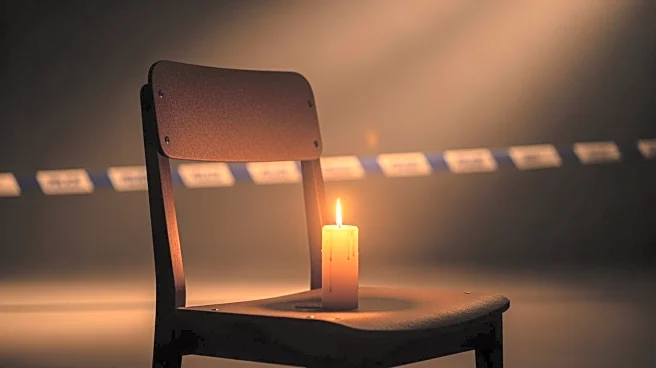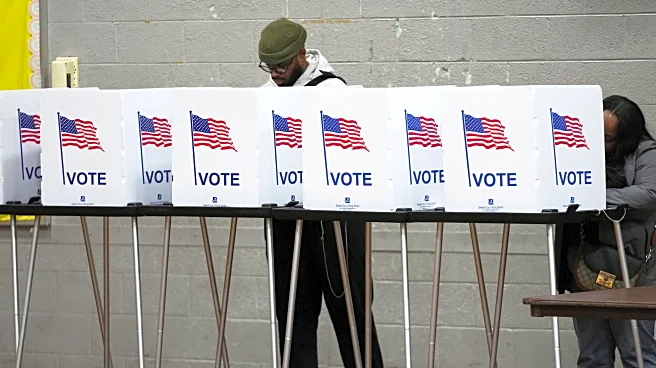What's Happening?
Four hostages remain in Gaza, with their families expressing fears of being forgotten as public attention wanes. Since the release of 20 hostages in mid-October, emotions have been mixed, with celebrations
for those returned and grief for those still held. The families of Dror Or, Ran Gvili, Meny Godard, and Sudthisak Rinthalak are urging the Israeli public and leadership to keep the issue alive in national discourse. Elad Or, brother of Dror Or, emphasized the need for continued public support, noting that the rescue of remaining hostages may require complex operations by the IDF. The families have formed deep bonds, sharing their pain and hopes for the safe return of their loved ones.
Why It's Important?
The situation highlights the emotional and psychological toll on families of hostages, as well as the broader implications for Israeli society and its handling of hostage crises. The families' plea for public support underscores the importance of maintaining national focus on unresolved hostage situations, which can influence government policy and military operations. The ongoing efforts to rescue hostages also reflect the complexities involved in such missions, potentially impacting diplomatic relations and military strategies. The emotional bonds formed between families illustrate the human aspect of geopolitical conflicts, emphasizing the need for empathy and solidarity.
What's Next?
The IDF is reportedly preparing for a complex operation to rescue the remaining hostages, which may involve engineering and logistical challenges. The families continue to advocate for public attention and support, hoping to prevent their loved ones from being forgotten. As the situation develops, potential reactions from political leaders and civil society groups could influence the pace and nature of rescue efforts. The families' call for continued public engagement may lead to increased media coverage and political pressure, potentially affecting government decisions and international diplomatic efforts.
Beyond the Headlines
The hostage situation in Gaza raises ethical questions about the treatment of hostages and the responsibilities of governments to their citizens. It also highlights the cultural dimensions of conflict, as families navigate the emotional landscape of hope and despair. The long-term impact on the families and their communities could lead to shifts in public perception and policy regarding hostage crises. The situation may also prompt discussions on the role of international organizations and allies in supporting hostage rescue efforts.










